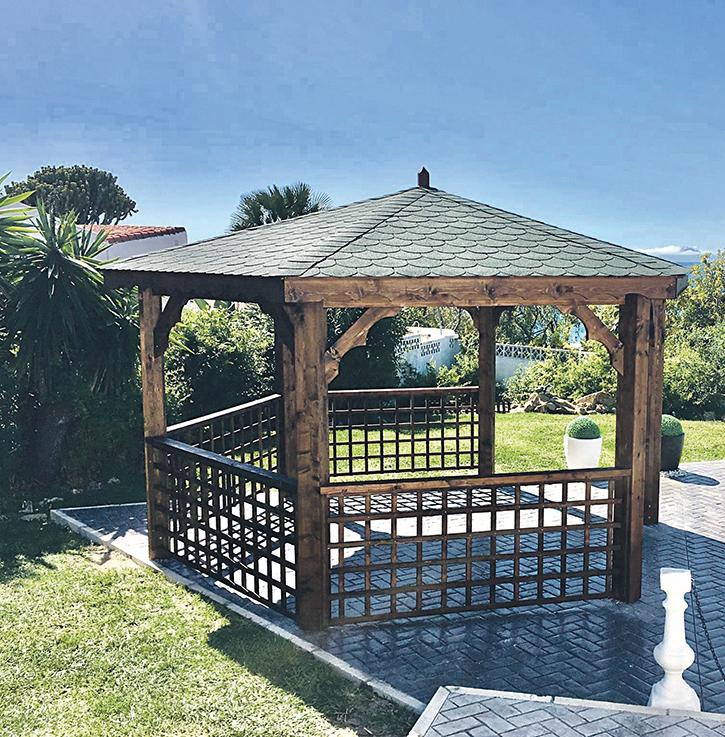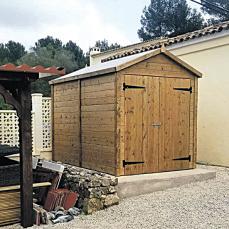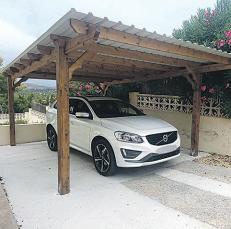
2 minute read
Out-of-date food seized Police uncover match fixing
A JOINT investigation involving the National Police, LaLiga and Europol, has uncovered a criminal organisation specialising in matchfixing.
A report from the National Police on Thursday, July 27 revealed how they investigated a criminal organisation dedicated to matchfixing within the Royal Spanish Football Federation (RFEF).
Together with LaLiga and Europol, officers of the National Police arrested a total of 17 people. In Melilla, 11 suspects were detained and six in Granada.
Among those arrested were officials and players of a third division RFEF football team, for allegedly committing the crimes of belonging to a criminal organisation, corruption between private individuals in the field of sport, fraud, money laundering and false documentation.
The investigation began last February when the Directorate General for the Regulation of Gambling, informed officers of several alerts re ceived from different online gambling platforms. Multiple bets had been placed from Melilla on specific results of football matches played by a team from the city.
Zaragoza, the Guardia Civil seized 1,708 kilos of products. Investigators again found evidence of expired consumption dates, as well as food that should have been marketed as fresh produce, but which was frozen before its expiry date and subsequently put on sale with the date exceeded.
In addition to this company, 19 other establishments were inspected throughout Spain, where SEPRONA (Nature Protection Service, a division of the Guardia Civil) found irregularities.





In total, the officers seized 18,196 kilos of products unfit for human consumption.
Simultaneously, LaLiga reported an anonymous communication received through its whistleblower channel, in which they reported suspicious practices of the same football team.
Investigators soon uncovered a complex criminal network, showing that the president of the team himself, managed the rigging, by involving players he trusted. The players also used third parties to place the bets and thus avoid being linked to the bets placed and the matches played.
Police investigations also showed that the same sports club has been the beneficiary of subsidies which were used fraudulently to increase the amounts to be collected.
Seven football matches are still being investigated and further arrests have not been ruled out, and the total amount swindled from the bookmakers cannot yet be quantified.





THE PRESENCE of a 'toxic cloud' in the Strait of Gibraltar has been denounced by Verdemar Ecologists in Action on Sunday, July 30.
According to the environmental organisation, ships passing through the corridor are responsible for these emissions. In a statement on social media, they claimed that levels are 'skyrocketing' in the Bay of Algeciras in Cadiz province. A similar problem exists in the North African enclave of Ceuta they added.
Despite the Ministry of Transport, Mobility and Urban Agenda (Mitma), deploying drones to monitor the control of air polluting emissions from ships, the situation is still occurring they insisted.
This system of monitoring is carried out in collaboration with the European Maritime Safety Agency (EMSA) and the General Directorate of the Merchant Navy.
Verdemar pointed out that 'apparently' the EMSA drone, called 'RPAS (Remotely Piloted Aircraft Systems)', has returned to the Strait of Gibraltar for the second time to detect the level of sulphur oxide emissions, as reported by a national news outlet.
Ships can be seen emitting fumes most days claimed Verdemar
'It is easy to see the plumes of smoke coming from ships crossing the Strait of Gibraltar without control', they stated. These come from ships that 'pollute the air and, due to the action of the wind, this contamination spreads tens of kilometres inland, increasing local air quality problems', they added.
As a result of these emissions, the environmental organisation stressed that par










